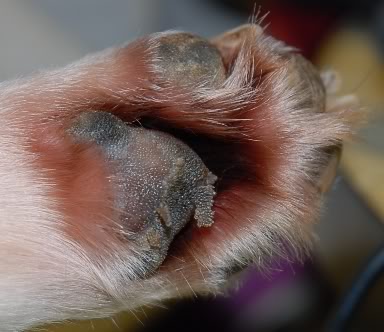If you own a pet, you’ll likely find this article on aloe vera for dogs to be of interest. We also need to take care of the people (or animals) around us in addition to our own skin. They are also human beings and are affected by the same illnesses and skin conditions as us.
For those skin issues in our best friends’ cutaneal region that are most bothersome, aloe vera for dogs is a great ally. In the following section, we’ll discuss the essentials for managing aloe vera, as well as its benefits and potential external and internal uses in dogs. ¡Comenzamos!.
Is Aloe Vera Safe for Dogs?
Products containing aloe vera are generally innocuous when used correctly. However, giving whole aloe vera plant leaves to dogs is not advised. For domestic animals, the leaves contain saponins, glycosides, and other substances that are mildly toxic. Your dog may experience depression, loss of appetite, vomiting, diarrhea, and urinary changes if a significant amount of the plant is consumed. Large doses may occasionally result in tremors but this is uncommon.
Do not be discouraged from adding aloe vera to your pet’s daily health regimen. Your dog will benefit from using this tropical succulent if you use the right part of the plant in the right way. Pet owners use two types of aloe vera: liquid made from the extracts and raw aloe vera gel taken directly from the plant.
Uses For Aloe Vera on/in Dogs…
Aloe vera has historically been used for conditions like dermatitis, burns, dry or cracked skin, and wound healing.
Of particular focus for us here today however is that Aloe is a powerful anti-fungal. In a study from 2004, Aloe gel was applied to Petri dishes containing three different growths of fungus. In all three cases, the Aloe gel significantly inhibited the fungi’s ability to spread.
More recently, scientists have isolated a novel protein from within Aloe that acts as an anti-fungal agent (which no doubt will be made available to you in a fancy cream from your nearest Pharmacy soon!). The protein, known as 14kDa, has a particular penchant for the Candida family (specifically C. albicans, C. krusei, and C. paraprilosis). This is particularly interesting when you consider only a few months ago we highlighted the growing realm of science that suggests an internal Candida overgrowth in some dogs is the cause of all sorts of chronically itchy skin conditions.
Thus while Aloe is handy to have around for any minor scrapes, abrasions, wound-dressing, burns, dry or irritated skin, it is also excellent for so many common conditions of dogs today which has an underlying fungal basis including:
 directly to area, repeat, repeat, repeat)
directly to area, repeat, repeat, repeat)How Does Aloe Vera for Dogs Work?

The aloe vera plant contains the chemical compound aloin, which has anti-inflammatory properties. “When applied to your dog’s red and inflamed skin, it can decrease inflammation and soothe their skin,” says Dr. Sara Ochoa, a veterinarian with Whitehouse Veterinary Hospital.
Vitamins C and E are also abundant in aloe vera, and vitamins A and C help with the formation of muscle and collagen as well as the healing process. Vitamin E is good for the health of the blood, brain, and skin.
FAQ
Is aloe vera toxic to dogs skin?
Dogs should not consume aloe vera, but they can safely apply it to their skin. It is important to practice caution when using Aloe Vera. Never administer it to your dog internally or let your pet consume it. Watch your dog carefully for any potential effects if he accidentally licks or consumes Aloe Vera.
What happens if my dog licks aloe vera?
The plant contains a substance called saponin, which is poisonous to both children and animals. Aloe vera consumption can result in severe diarrhea, frequent vomiting, and low blood sugar. The toxicity may even be so severe as to result in the destruction of red blood cells, which can be fatal if not immediately treated.
Can I use aloe vera to wash my dog?
Aloe vera has also proven to be very helpful for other skin issues, such as allergies and flea bites, according to many pet owners. Dog shampoos containing aloe vera can also be very soothing.